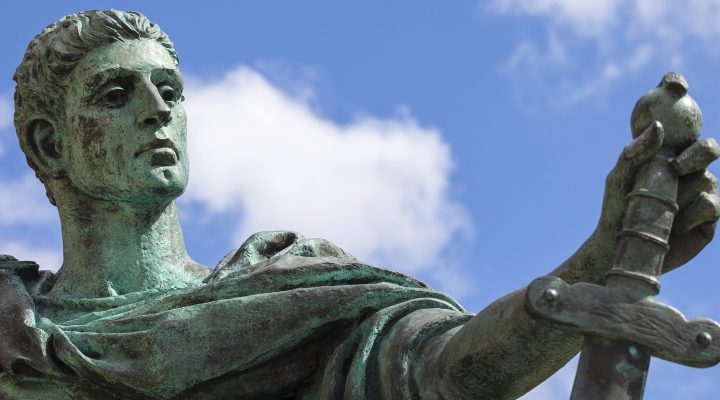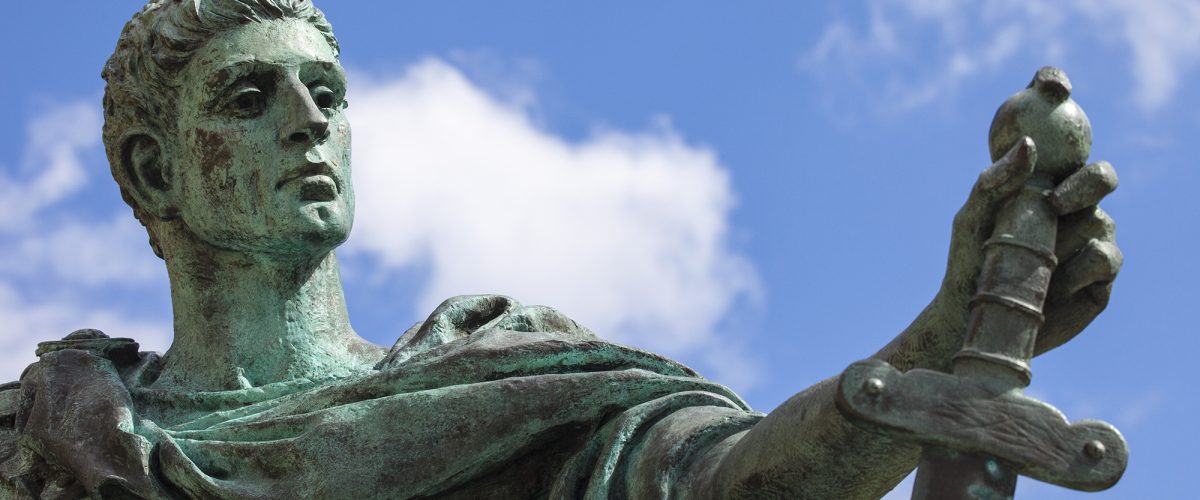Public Religion Research Institute is a nonprofit and nonpartisan research organization dedicated to conducting independent research in the fields of religion, culture and public policy. They focus on important issues that shape American culture, religious dynamics, political viewpoints and sociological perspectives. Many of these topics are especially relevant to the missional values of churches and religious bodies across our nation.
On Feb. 8, PRRI released findings from a study titled: “A Christian Nation? Understanding the Threat of Christian Nationalism to American Democracy and Culture.” In this study, which was conducted in late 2022 and comprised of 6,212 respondents, people were asked about their level of agreement with the following statements:
- The U.S. government should declare America a Christian nation.
- U.S. laws should be based on Christian values.
- If the U.S. moves away from our Christian foundations, we will not have a country anymore.
- Being Christian is an important part of being truly American.
- God has called Christians to exercise dominion over all areas of American society.

Patrick Wilson
Responses were categorized into these groupings: adherents who completely agree, sympathizers who mostly agree, skeptics who mostly disagree, and rejectors who mostly disagree. Based upon the additional responses collected about the participants, the data was further categorized and evaluated.
While it may come as no surprise, nearly two-thirds of white evangelical Protestants identify as advocates (either adherents or sympathizers) for Christian nationalism. Christian nationalists tend to hold to a high view of religious practice and are twice as likely to regularly attend church services.
Conversely, more than three-fourths of Hispanic Catholics, Jews and the religiously unaffiliated are skeptical or completely reject Christian nationalistic ideals.
The study went on to chart numerous findings based on religious subgroups, political partisanship, trust of the media, gender, age, education, race, views of religious pluralism and isolationism, care for the marginalized, attitudes toward the police, perspectives on violence, and much more.
However, the PRRI findings center on these five which correlates to Christian nationalism:
- Anti-Black racism
- Anti-immigrant views
- Antisemitic views
- Anti-Muslim views
- Gender and the patriarchy
What does all this mean? In sum, there appears to be strong evidence that ties the centrality of Christian nationalism to a group of people who are prominently white evangelical Protestants, who advocate against diversity and pluralism, and who seek to align their position of privilege with political power.
In evaluating statistical data, there are many dangers. Certainly, no survey is exhaustive and without a margin of error. In addition, many fallacies can be drawn by selective data and responses.
“There are clear indications that a sizable group of Americans hold a very exclusivist viewpoint that poses a heavy sway in our country.”
When analyzing for congruence, it can be challenging to note what the common denominators are and which aspect influences the others. There is the danger of developing somewhat of a circular argument to pick out one conclusion and formulate others around it. Many generalizations and assumptions tend to loom over statistical data, but this does not devalue what a survey like this does provide as an overarching analysis of the macro of our society: There are clear indications that a sizable group of Americans hold a very exclusivist viewpoint that poses a heavy sway in our country — politically, socially, culturally and spiritually.
While all these parallels warrant deeper evaluation, the focus of this article will be to explore in greater depth the corollary between patriarchal views and the dominance of power in American society.
In the biblical polemic of the opening chapters of Genesis, we are given an explanation of the formation of humanity prior to other institutional structures. So, from a biblical point of view, it can be reasonably asserted that how human beings treat other people is foundational to a Judeo-Christian worldview. In particular, how men and women treat each other as image bearers of the Creator is central to our understanding of God, faith and the dominion of the kingdom of God on earth.
According to the PRRI study, 64% of Americans surveyed disagree with the statement: “In a truly Christian family, the husband is the head of the household, and his wife submits to his leadership,” whereas only 15% disagree with the statement, “American society improves when women have more career and educational opportunities.”
However, among Christian nationalist adherents and sympathizers, these percentages are dramatically different. More than half of sympathizers and nearly 70% of adherents to Christian nationalism advocate for male headship and female submission in the home, and approximately twice as many (23% sympathizers and 31% adherents) would prefer women to have fewer career and educational opportunities.
Let’s draw some corollaries to the quest for power and the implications of misogyny behind these patriarchal views.
Complementarians hold to a relational view that men are to be the Christian leaders in the home and while ontologically equal with their wives, men and women hold functionally different roles. Women are to serve primarily as nurturers who bear and raise children, while men are to lead in the home and society (including the church) and serve as the ultimate decision makers. This view is contrasted with the egalitarian perspective of shared, mutual roles between men and women.
As explained statistically above, the complementarian understanding of the Bible and Christian practice is disproportionally held by white evangelical Protestants who espouse the view of Christian nationalism.
“It should be no wonder when we see laws passed or court decisions made that minimize the rights of women in our country.”
As misogynists — who hold prejudice against women and their capabilities for equal advancement and opportunity in society — gain power in political office or by allying with those that have the power in the public square, it is only a small step to the abuse of power over women and other marginalized groups (for example, the dismissal of the Tennessee Three, anti-trans laws in unprecedented numbers, caging of immigrants along the border). It should be no wonder when we see laws passed or court decisions made that minimize the rights of women in our country.
As complementarians maintain strongholds of leadership in conservative-leaning denominations and churches, we should not be shocked to read of the proliferation of sexual abuse scandals and the secretive attempts to bury any accusation against those in positions of leadership and power.
As patriarchy is preached from the pulpit and women are omitted from ordination and leadership capacities (but remain the majority of regular participants and faithful workers in many local churches), we should not wag our fingers in shame on younger generations who seek liberation from such tyranny to serve God and fulfill their calling, regardless of how they are labeled.
For example, as has been well noted in many excellent pieces at Baptist News Global, “Those who say women cannot be pastors are ‘wrong,’ open letter asserts.” Mike Law, a Virginia pastor, called on the Southern Baptist Convention to break fellowship with hundreds of churches that have women clergy. This was countered by Baptist Women in Ministry asking for people to sign an open letter affirming women “who are ministering, leading and pastoring to spread the love and grace of Jesus Christ” (To date, the BWIM letter has amassed more than 3,000 signatures.).
America is at a crucial crossroad. With the impending gatherings of several denominations in the coming months, major decisions will be made to determine which path they will pursue. As candidates declare their run for state and national office, many issues will be debated. Power will be sought; it will be bestowed on some and not others.
“Lasting spiritual renewal never comes from establishing a kingdom of power.”
In the wake of the Asbury revival, many Americans seem curious and cautiously hopeful for an awakening. If Jesus’ approach to Calvary teaches us anything, it is this: Lasting spiritual renewal never comes from establishing a kingdom of power; rather, the movement of the Spirit of Jesus accompanies a passionate surrender and a shared power through inclusion.
Peter was on to this when he quoted from the scroll of Joel on that pentecostal day in the temple:
In the last days, God says,
I will pour out my Spirit on all people.
Your sons and daughters will prophesy,
your young men will see visions,
your old men will dream dreams.
Even on my servants, both men and women,
I will pour out my Spirit in those days,
and they will prophesy.
Acts 2:17-18, Joel 2:28-29
Revival broke out, thousands were baptized into the way of Jesus, and the kingdom of God rippled across the known world, but it all started when a small group of open-minded and maturing disciples let go of their patriarchal heritage and embraced the inclusivity of women as creative visionaries, prophetic preachers and societal leaders.
The kingdom of God does not come through might or power but by the work of the Spirit in each and every human being regardless of gender, ethnicity, sexual orientation, background, education, profession or social strata. The kingdom of God does not come through the political might of an imperial government, but through the suffering service of caring for the least accepted in society.
Misogyny begets nationalism, and to tie them to Christianity defames the name of Jesus. As we take up the Cross to follow in the way of Jesus, we must affirm the inherent worth and divine calling of all people — women and men — and denounce all efforts to align the values of the kingdom of God with the power of any nation, especially our own.
The kingdom of God does not come through the scepter but through the Cross.
Patrick Wilson has served as a pastor for 25 years in Dallas and Austin, Texas, and most recently in in Rolla, Mo., where he now leads a new community of faith, CrossRoads. He is a graduate of Baylor University, earned two master’s degrees at Southwestern Baptist Theological Seminary and a doctor of ministry degree from Logsdon Seminary.
Related articles:
Why aren’t we talking about the theology that drives white Christian nationalism? | Analysis by Rick Pidcock
The threat of Christian nationalism has only grown since January 6 | Opinion by Brandan Robertson


